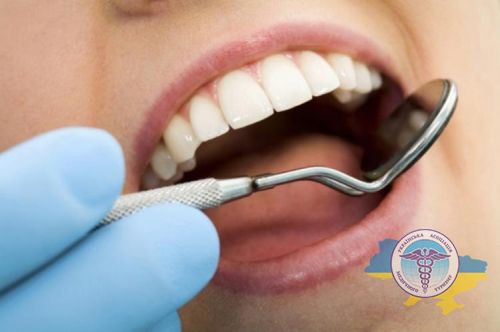Tongue cancer treatment abroad

Cancer of the tongue is a malignant tumor that develops from the epithelial cells of the mucous organ. Among all oncological pathologies of the oral cavity, this is the most common type of cancer (diagnosed in about 65% of cases).
The disease is characterized by rapid growth and a tendency to metastasize to the lymph nodes, liver, and lungs. Such an aggressive course of the disease leads to the death of most patients within a year.
Attention! Foreign medicine demonstrates completely different results: about 90% of cancer patients successfully overcome the 5-year border of survival there.
Tongue cancer treatment abroad is based on the use of sparing organ-preserving approaches. The disease requires not only high-quality treatment, but also a number of restorative procedures: organ reconstruction, restoration of speech and swallowing function.
After surgery, a long course of supportive therapy is prescribed, aimed at stimulating immunity for the body to fight the disease on its own. When needed, doctors use new methods, the most common of which is chemotherapy without hair loss or systemic disorders.
Such complex therapy can improve the health of most patients and return them to their usual way of life.

Want to know how much the treatment costs?
Answer a few questions and get preliminary information about the cost of diagnosis and treatment!
What is tongue cancer?
Visually, tongue cancer can be recognized by a tumor or non-healing wound on the surface of the organ. Cancer cells can affect both the front of the organ and the back. In 70% of cases, the tumor is located on the lateral surfaces. Symptoms of the disease can manifest themselves in different ways, depending on the location of the formation.
Among the most common causes of the pathology, experts call smoking, alcohol abuse and infection with the HPV virus. Most often, the disease develops in adults, in children it is rare. In men, pathology is diagnosed 2 times more often than in women.
Important! After the diagnosis is made, further tumor growth or its spread to neighboring organs should not be allowed. To do this, you need to start treatment as soon as possible.
Benefits of Tongue Cancer Treatment Abroad
For CIS citizens, treatment abroad, including tongue cancer, has become quite common today. The high popularity of medical tourism is associated with a number of advantages that favorably distinguish foreign medicine.
The main ones are:
- Good results - treatment of tongue cancer abroad in 97% of cases significantly improves the condition. This is explained by the fact that in developed countries the government provides financial support to all medical institutions and allocates considerable funds for clinical trials, planned replacement of equipment, and advanced training of doctors;
- Personal approach - a therapeutic plan is developed based on the data of a complete examination. Depending on his results, the ENT oncologist can prescribe radiation, chemotherapy, targeted drugs, immunotherapy;
- Using modern technologies - thanks to biotherapy, radiotherapy, robotic surgery, doctors manage to preserve the patient's speech function and taste;
- Interdisciplinary approach - success is achieved as a result of well-coordinated work of a team of specialists: oncologists, surgeons, ENT doctors, speech therapists, rehabilitologists;
- Modern diagnostics - the use of the latest approaches in diagnostics makes it possible to identify not only cancer cells, but also to reveal precancerous conditions. Express diagnostics takes only 2 days;
- The use of organ-preserving techniques - in 83% of cases, minimally invasive operations are performed, which do not leave visible scars and preserve the functionality of the organ;
- Reconstructive surgery - after removal of the tumor, in order to restore the basic functions (swallowing, chewing, speaking), high-quality organ reconstruction is often required, which can only be performed by highly qualified specialists.
Tongue tumor diagnostics in clinics abroad
Attention! A complete examination is an obligatory part of the treatment plan. Diagnostic data allow you to choose the most effective therapy. In most cases, the diagnosis does not take more than 3 days.
The examination begins with a consultation with an oncologist, during which the doctor clarifies the complaints, examines the documentation brought by the patient, assesses the condition of the lymph nodes and the whole body as a whole.
To clarify the diagnosis, such methods are used:
- Blood tests (clinical, biochemical, immunological);
- Endoscopic examination of ENT organs for the presence of metastases;
- X-ray examination to detect the spread of the oncological process to the jaw;
- Ultrasound of the mouth and neck;
- CT and MRI to clarify the location of the formation and the stage of its development;
- Biopsy to determinate exact type of tumor.
Thus, the diagnosis of tongue cancer in clinics abroad includes a number of examinations that help specialists to develop the most effective treatment plan and select effective methods.
Tongue Cancer Treatment Abroad

Doctors use both traditional approaches to the treatment of oncological pathologies (surgery, radiation and chemotherapy) and innovative ones. Much attention is paid to rehabilitation.
Consider the main methods used in clinics for the treatment of tongue cancer abroad.
Surgical treatment
The main method of treatment for any oncological disease is surgical intervention. Surgery of tongue requires special skill from surgeons - after all, this organ is involved in the digestion of food and the formation of speech sounds. For these reasons, specialists carry out interventions in such a way as to preserve organ as much as possible.
In the initial stages of the disease, most often, operations are performed using sparing techniques.
The tumor can be removed using:
- thermocoagulation;
- gamma knife;
- focused ultrasound or laser.
In advanced cases, a classic operation is performed - a glossectomy with excision of the adjacent lymph nodes and tissues. Radical intervention allows you to get rid of the source of cancer cells, prevent further tumor growth and the formation of metastases.
Depending on the extent of the lesion, a partial glosssectomy (removal of part of the tongue) or total (removal of the entire organ or a significant part of it) can be performed.
Large tumors are previously treated with chemotherapy or radiation. The procedures reduce the size of the formation, which makes surgery easier. Repeated courses of radio and chemotherapy are given to destroy the cancer cells left by the surgeon.
To return speech and normalize the function of swallowing, plastic surgery is used. It can be performed simultaneously with the removal of the tumor or later.
Radiation therapy
It is used both in complex therapy and independently. Irradiation before surgery significantly reduces size of tumor. After the intervention, the procedure is performed to destroy the remnants of cancer cells. As a method of palliative treatment, radiation therapy is used to alleviate the patient's condition and prolong his life.
Remote method
It is used to fight small tumors that are exposed to high power ionizing radiation. Precise exposure directly to the affected area significantly increases the therapeutic effect. At the same time, healthy tissues are practically not affected.
Chemotherapy
Effective in the presence of metastases, in inoperable cases and as one of the methods of preparation for surgery. It is performed in courses with obligatory breaks, which are necessary to restore the body from potent drugs.
Close focus radiation therapy
The procedure consists in delivering the radiation source directly to the affected areas. For this purpose, a drug with a radioactive substance is injected into the tumor through a hollow needle. Such a local effect allows you to quickly destroy the formation, since a precisely calculated dose acts only on atypical cells. During the procedure, the surrounding tissues are exposed to minimal radiation exposure.
Laser and high-frequency thermal ablation
Effective in the destruction of small formations without signs of metastasis. The destruction of the pathological focus occurs due to exposure to high temperatures. This is one of the least traumatic methods to preserve organ functions.
HIFU thermal ablation
Another sparing organ-preserving technique used in many foreign clinics. When used, a beam of high-intensity ultrasound is directed directly at the tumor. In this case, heating occurs up to 90deg, which causes the death of cancer cells. The procedure is performed under the supervision of MRI.
Cryoablation
Local exposure to ultra-low temperatures. During the procedure, liquid nitrogen is applied to the pathological area (t -200), which causes necrosis of the affected tissues and destruction of the vessels supplying the neoplasm. When cryoablation is used, the surrounding tissues are not affected, therefore, if necessary, cryodestruction can be repeated.
Tongue resection and reconstruction
After removal of a part of the organ, its reconstruction is required. For this, the patient's tissues are used, which significantly reduces the risk of their rejection.
Surgical reconstruction is a complex high-tech operation during which a piece of tissue is transplanted, nerves and blood vessels are sutured. To perform interventions of this level, special equipment is required, so they are not possible in every clinic.
Rehabilitation
After removing the tongue, you need to re-learn to chew, swallow, and pronounce sounds. Specialists of various fields are working on the successful restoration of these skills: plastic surgeon, rehabilitologist, speech therapist.
Prices for the treatment of tongue cancer in foreign clinics
In addition to the level of equipment of the clinic and the professionalism of doctors, all patients are interested in the cost of language cancer treatment abroad. Unfortunately, it is impossible to answer this question exactly. The final price depends on many factors: the country chosen for the treatment, the status of the clinic, the stage of the disease and the complexity of the required therapy.
Estimated prices for basic procedures are shown in the table:
Procedure | Cost in different countries, $ | |||
Israel | Germany | Turkey | Austria | |
Chemotherapy | from $3300 | from $3500 | from $2100 | from $3000 |
Laser therapy | from $22000 | from $19000 | from $12000 | from $19000 |
Radiotherapy | from $9000 | from $9000 | from $5000 | from $9500 |
Tongue reconstruction | from $35000 | from $35000 | from $23000 | from $33000 |



